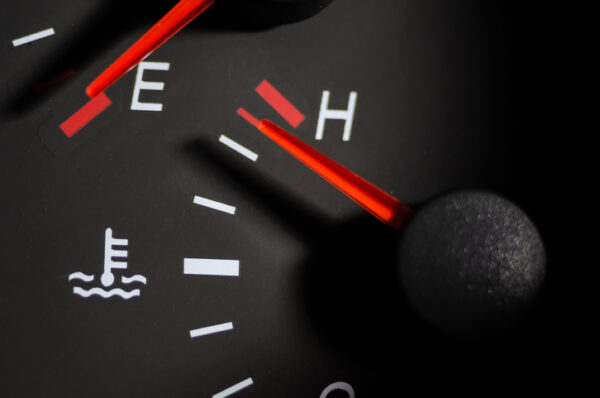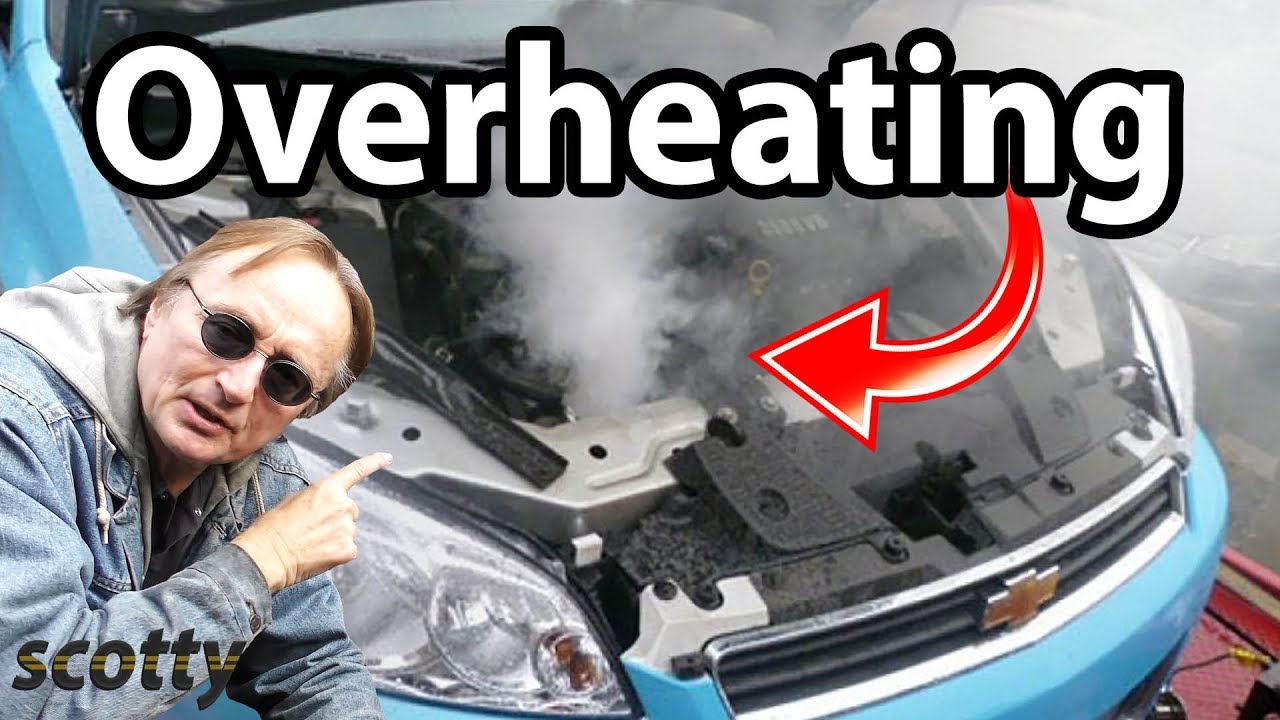To diagnose an overheating engine, check the coolant levels and look for any leaks in the cooling system. Introduction (120 words): An overheating engine can be a frustrating and potentially costly problem for motorists.
Not only can it lead to breakdowns, but it can also cause serious engine damage if not addressed promptly. Diagnosing the cause of engine overheating is crucial in order to resolve the issue and prevent further complications. The first step in diagnosing an overheating engine is to check the coolant levels.
Insufficient coolant can cause the engine to overheat, so ensuring that the coolant is at the appropriate level is essential. Additionally, it is important to inspect the cooling system for any leaks, as leaks can cause a loss of coolant. By carefully examining the coolant levels and checking for leaks, drivers can effectively identify the cause of engine overheating and take appropriate action to resolve the issue.
Common Causes Of Engine Overheating
Engine overheating can be a frustrating problem to deal with, but diagnosing the issue can help you resolve it quickly. One common cause of engine overheating is insufficient coolant levels. If the coolant level is too low, it cannot effectively regulate the engine temperature, leading to overheating. Cooling system leaks can also contribute to engine overheating. Even small leaks can result in coolant loss over time, affecting the cooling system’s ability to function properly. Another potential culprit is a malfunctioning thermostat. The thermostat regulates the flow of coolant through the engine, and if it becomes stuck closed, the coolant cannot circulate and cool the engine effectively.

Credit: living.geico.com
Symptoms Of An Overheating Engine
There are several symptoms that can indicate an overheating engine. One such symptom is an abnormal temperature gauge reading. If you notice that the temperature gauge is showing a higher temperature than usual, it could be a sign of an overheating engine. Another symptom to watch out for is the presence of steam or smoke coming from the engine. If you see steam or smoke, it is likely that the engine is overheating and needs immediate attention. Additionally, unusual smells can also indicate an overheating engine. If you detect a burning or sweet smell coming from the engine, it could be a sign of coolant leakage or a malfunctioning component. It is important to address these symptoms promptly, as an overheating engine can lead to serious damage if left untreated.
How To Inspect The Cooling System
The cooling system inspection plays a crucial role in diagnosing an overheating engine. By following the proper steps and paying attention to signs of coolant leaks, damaged hoses, or malfunctioning radiator fans, you can identify the source of the problem and take appropriate action to prevent further damage.
Regular inspection is key to maintaining optimal engine performance.
The cooling system of your vehicle plays a crucial role in preventing the engine from overheating. Regularly inspecting and maintaining the cooling system can help identify potential issues early on. Start by checking the coolant levels at regular intervals to ensure they are within the recommended range. Low coolant levels can lead to overheating. Look for any leaks in the system, such as puddles underneath the vehicle or signs of coolant seepage. Leakages can cause a decline in coolant levels, resulting in engine overheating. You can also test the thermostat to ensure it is opening and closing properly. A faulty thermostat can disrupt the flow of coolant, leading to overheating. By regularly inspecting the cooling system, you can catch and address any issues before they escalate into major problems.
Troubleshooting Overheating Engines
One common cause of an overheating engine is a faulty cooling system. Flushing the cooling system can help remove any built-up debris or contaminants that may be blocking the flow of coolant. It is recommended to follow the manufacturer’s instructions or consult a professional mechanic to ensure the correct procedure is followed.
Coolant leaks can also contribute to engine overheating. Inspect the radiator, hoses, and water pump for any signs of leakage. If a leak is detected, it is important to fix it promptly to prevent further damage to the engine. This may involve tightening connections, replacing damaged hoses, or repairing the radiator.
Another potential cause of engine overheating is a faulty thermostat. The thermostat regulates the flow of coolant through the engine. If it becomes stuck closed, coolant may not circulate properly, leading to overheating. In this case, it is recommended to replace the faulty thermostat with a new one to restore proper functioning.
Additional Maintenance Tips
Regularly checking your coolant levels is an essential part of maintaining your engine and preventing overheating. This involves inspecting the coolant reservoir and ensuring it is filled to the recommended level. If you notice any signs of leakage or a decrease in coolant levels, it is important to address the issue promptly.
In addition to monitoring coolant levels, flushing the radiator is another maintenance tip that can help prevent engine overheating. Over time, the radiator can accumulate debris and sediment, which can hinder its ability to dissipate heat effectively. Flushing the radiator involves draining the old coolant and replacing it with fresh coolant, helping to ensure optimal performance.
Inspecting belts and hoses is another important step in diagnosing overheating issues. Worn-out or damaged belts and hoses can lead to coolant leaks or improper circulation, causing the engine to overheat. Regularly inspect these components for signs of cracking, fraying, or bulging, and replace them as necessary.
Contacting A Professional Mechanic
Identifying and resolving issues with an overheating engine can be challenging. While some problems can be resolved by the vehicle owner, there are instances when seeking professional help is necessary. Knowing when to involve a qualified mechanic is crucial to prevent further damage to the engine.
- If the engine temperature consistently rises above the normal range, it is recommended to contact a professional mechanic. They have the experience to identify the underlying cause and provide appropriate solutions.
- Unusual noises, such as knocking or popping sounds, accompanied by overheating, require expert attention. Ignoring these signs could lead to severe engine damage.
- When attempts to resolve the overheating issue on your own have been unsuccessful, it is time to consult a mechanic. They possess the necessary tools and expertise to diagnose and repair complex engine problems.
Choosing the right mechanic is crucial in ensuring a proper diagnosis and repair of an overheating engine. Here are a few tips to find a reliable professional:
- Ask for recommendations from friends, family, or trusted auto enthusiasts. Their firsthand experiences can help you find a mechanic with a good reputation.
- Do thorough research on local mechanics, checking online reviews and ratings. This will provide insights into their reliability and competence.
- Upon narrowing down your options, visit the selected mechanics personally. Discuss the overheating issue, their experience, and certifications to determine their suitability for the job.
To ensure you choose the right mechanic for your overheating engine problem, it is essential to ask the following questions:
- Are you certified and experienced in dealing with engine overheating issues?
- What diagnostic tools and techniques will you use to identify the problem?
- Can you provide an estimate of the repair costs, including parts and labor?
- What guarantees do you offer for the repairs made?
- Do you have any customer references or testimonials?
Conclusion
To sum up, diagnosing an overheating engine is crucial to prevent major engine damage and costly repairs. By paying attention to warning signs such as high temperature readings, leaking coolant, or strange smells, you can take proactive measures to address the issue.
Regular maintenance and inspections are also key to ensuring your engine runs smoothly. Remember, the health of your engine is essential for a safe and efficient driving experience. Stay alert, address any concerns promptly, and seek professional help if needed.

